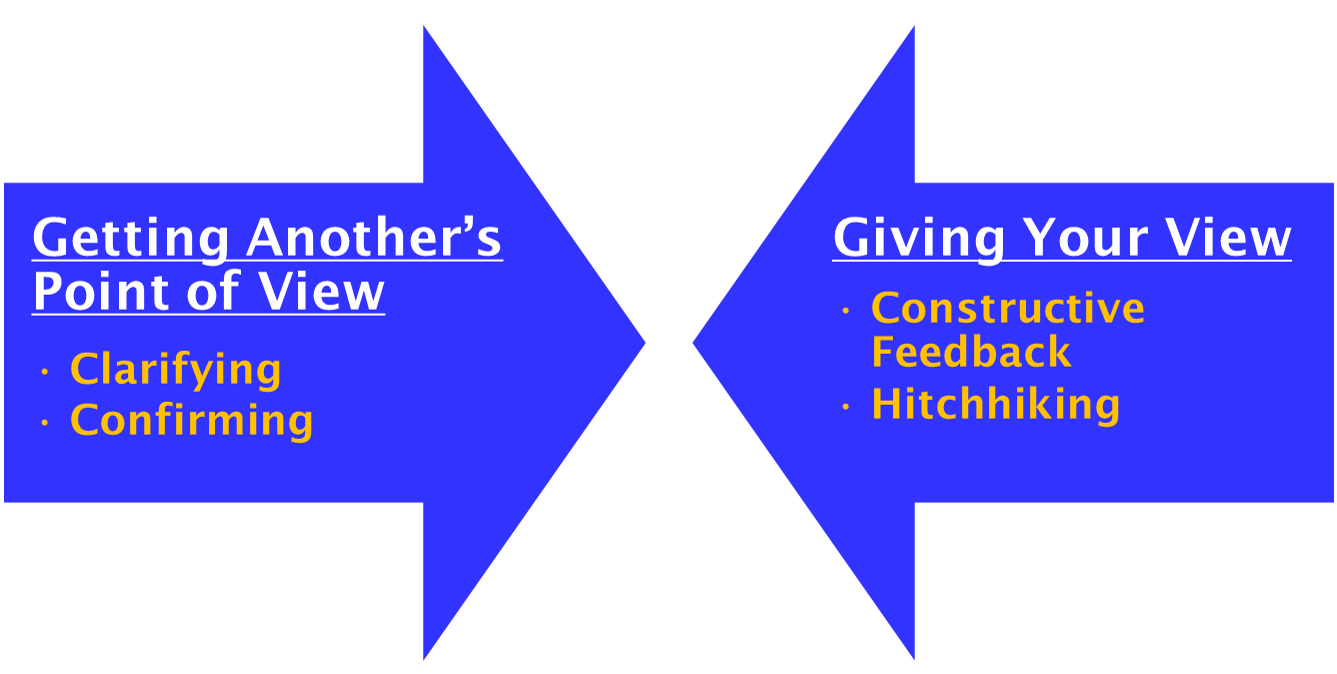Active Listening & Communicating

Conversations include getting and giving information; where all parties end the conversation feeling good, a win-win. Too often conversations are not win-win, instead we experience:
- Not listening to or considering one another’s ideas.
- Not using each others' thoughts to build better solutions.
- Receiving or providing feedback that alienates the person.
- Hijacking other's ideas.
Let's explore these giving and getting communication skills to create more win-win conversations -
Working With Others Active Listening & Communication Skills

Why Building These Skills is Worth Your Time
Data has shown a 10-20% team productivity increase.
More positive working relationship with peers.
Decrease the waste of rework because we did not truly understand each other.
Gain skills that enable participants to participate in teams more effectively.
Better ideas, problem solving, and solutions.
Getting Another's Point of View

1. Clarifying: Asking open ended questions to uncover the elements of what someone is thinking so that you have the complete understanding of their viewpoint. Use clarifying questions when you don't understand what the person is thinking or why he or she is sharing it with you. A tip: clarifying also helps the person sharing to better understand too.
2. Confirming: Saying in fresh terms what you understand the person has said to you. This allows you to verify that you heard the person correctly and shows the person that you understand what he or she has said. Using confirming statements to gain mutual understanding.
Giving Your View (When you have concerns &/or ideas to share)
3. Constructive Feedback: When you have a concern about something someone has shared even after you have confirmed your understanding of it. This can address concerns and build to solutions that integrate the best in one another's thinking. A tip: Always begin with recognizing the value in the idea before expressing a concern and offer a suggestion for improvement.
4. Hitchhiking: When you hear an idea and a thought pops into your mind about how to move the idea ahead or broaden its impact. This allows you to add value to other people's ideas in a way that sustains collaboration, without "hijacking" the idea. A tip: When hitchhiking on someone's thought, acknowledge them and the connection and check back with them after giving your thoughts to confirm this is a good addition.
These Working with Others skills originated from Vital Enterprises, Raphael Vitalo, James Byron, & Patricia Bierley.
Gain these skills:

